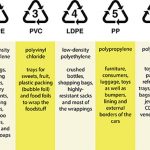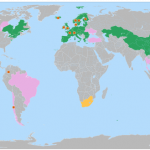Has Shale Gas Reduced Carbon Emissions?
Jim Hansen Last week, I wrote that the U.S. is on course to set a new export record of coal. A few days later the EIA made similar projections and estimate that exports will reach 125 million tons for 2012. One side effect of the success of U.S. coal exports is the degree to which may they have cancelled out the carbon emissions reduction experienced in the U.S. as shale gas displaced coal in the power generation sector. This question of displacement was addressed in a study just released by researchers at the University of...
UBS Launches CO2 Emissions Index
UBS (NYSE:UBS) announced on Friday the launch of the UBS World Emissions Index (UBS-WEMI) – the world’s first index based on global carbon markets. At the moment, only the two exchanges linked to the EU Emissions Trading Scheme (ETS) , the Nordic Power Exchange (Nordpool) and the European Climate Exchange (ECX), qualify for WEMI. The index is composed of future contracts on CO2 weighted between the two trading platforms as follows: ECX, 72.11% and Nordpool, 27.89%. The weights are allocated based upon the liquidity of the underlying exchanges as well as their respective share in the European carbon market....
Some Emissions Trading News
A lot has happened in the world of carbon finance and emissions trading since we last wrote about this topic, so I felt this might be good time to provide a quick update. (A) The World Bank Carbon Finance Unit recently released its State and Trends of the Carbon Market 2007 (PDF document), a periodic assessment of the scale and characteristics of the global market for carbon dioxide emissions. The Bank found a large increase in the volumes traded (131%) and dollar value (177%) of the global carbon market in 2006 over 2005. Unsurprisingly, the EU ETS...
Climate change, carbon trading and America…it’s only a matter of time
Just a quick follow-up on my carbon trading post a few days ago. Thanks to GreenBiz.com for the heads up on the results of a survey that were released during MIT's seventh annual Carbon Sequestration Initiative Forum. The results show that climate change now tops the list of environmental concerns for Americans. I don't want to reveal too much here since this is a GreenBiz.com story, but it suffices to say that this provides yet more ammunition to the political backers of a framework to reduce greenhouses gases in America. Momentum is building and there will definitely be some...
Carbon Offsets Work – Will the Mainstream Media Ever Get It?
The carbon markets are an area of keen interest for me personally and professionally, so it is always frustrating that the mainstream media largely refuses to learn the details. In general, layman and media who don’t understand the details of the carbon markets attack carbon offsets in two areas, first, questioning whether the credits are for a project that would have occurred anyway (a concept known in carbon as “additionality”), and second questioning whether there are checks and balances to ensure the environmental standards are adhered to and the abatement actually happens (in carbon known as the validation...
Update on the Global Carbon Market
The World Bank Carbon Finance Unit recently released its Q3 2006 update for the global market for CO2 emissions (the carbon market). The document, entitled “State and Trends of the Carbon Market 2006��? (PDF file), contains some pretty interesting information that makes it difficult not to be bullish on the future of emissions trading. Here are some numbers. At the end of Q3 2006, the total value of the market stood at $21.5 billion, up 94% on the whole of 2005 ($11.1 billion). Unsurprisingly, Europe, with its Emissions Trading Scheme, continues to account for the bulk (~99%) of...
Dead Wrong On Climate Exchange
In a May 8 post I opined that, although I believed that recent developments on the climate change file in the US would bode well for Climate Exchange plc (CXCHF.PK), I thought that the stock was overpriced and had had too great a run for its own good over the past 3 months. I therefore predicted that the next move the stock would make would be to the downside. Climate Exchange was trading at around $28 then, and today it is trading in the neighborhood of $36. I continue to believe that this stock is going way too...
Plastic Recyclers Chasing Arrows
According to Plastics Europe Research Group, over 35 million tons of plastic material was produced globally in 2016, the last year for which full-year data is available. That brought total plastic production to 9 billion tons since 1950. All of those plastic materials remain in existence somewhere - still in use, landfills, junk yards, blowing around the countryside, waterways, oceans, fish stomachs. The post “Plastic Contagion’ on April 13th outline the dangers presented by plastic waste, ranging from respiratory failure from toxic emissions to reproductive interference in aquatic animals.
The building burgeoning volume of plastic waste has sent environmentalists scrambling for solutions to the plastic waste...
Carbon ETFs/ETNs: Playing Copenhagen
Charles Morand At $126 billion transacted in 2008, up from $11 billion in 2005, the global carbon market is the fastest growing commodities market in the world and, provided that an agreement is reached at the COP15 conference in Copenhagen and that the US adopts a cap-and-trade program, this growth could go on for several more years. Yet this is a market that remains comparatively unknown for a number of reasons, not the least of which is the fact that the rules surrounding it are very complex. Unlike other commodities, to successfully invest directly in...
How Energy Deregulation Affects States and Stocks
by Elaine Thompson
Bloomberg New Energy Finance, in an executive summary of its New Energy Outlook 2017 report, predicts renewable energy sources will represent almost three-quarters of the $10.2 trillion the world will invest in new power-generating technology.
Analysts outline several reasons for this increase in spending, such as the decreasing costs of wind and solar and consumers’ increasing interest in solar panels. Competition between power sources also continues to grow, with products like utility-scale batteries upsetting coal and natural gas’s roles in the marketplace.
But more importantly, state-driven renewable portfolio standards pave the way for additional ventures in renewable energy technologies, particularly...
ADR For Climate Exchange plc
One of our readers made a useful comment on our last post about Goldman Sachs and Climate Exchange plc. I thought some of you who are unlikely to go back to that post might be interested: "Hey this article on the Climate Exchange was great information. But you should tell your readers that there is an ADR trading OTC here in the states - CXCHF. Get it while the gettin is good. How long 'til GS takes this to the big board?" Thanks for this heads up, cascadehigh. UPDATE: Following this post, I got the...
World Energy Solutions (XWES) and Ram Power (RPG.TO) Appear Promising
From Small Fries to Big Shots? Part 1 of 2 by Bill Paul Feel like rolling the dice on some small alternative energy stocks that appear to have big-time potential? Just remember: sometimes you roll snake eyes. First up: World Energy Solutions Inc. (Symbol: XWES), which currently trades on NASDAQ for $3 and change per share. Worcester, MA-based World Energy Solutions operates online exchanges for energy and green commodities, including the one administered by Regional Greenhouse Gas Initiative Inc. (RGGI), the regulatory scheme under which 10 Northeastern and Middle Atlantic states "cap" their power plants' emissions by requiring...
List of Environmental Markets Stocks
This post was last updated on 4/27/2022.
Environmental market stocks are publicly traded companies whose business involves the trading of commodities designed to represent an environmental attribute, such as renewable electricity, the environmental benefits of renewable energy (Renewable Energy Credits ), Carbon Offsets and other types of environmental offsets.
Carbon emission trading implemented
Carbon emission trading scheduled
Carbon tax implemented
Carbon tax scheduled
Carbon emission trading or carbon tax under consideration
By Tbap , via Wikimedia Commons
Crius Energy Trust (KWH-UN.TO, CRIUF)
GlyEco, Inc. (GLYE)
Hannon Armstrong Sustainable Infrastructure (HASI)
Just Energy Group Inc. (JE)
KraneShares Global Carbon ETF (KRBN)
Trading Emissions PLC (TRE.L)
If you know of...
Is Energy Sourcing the Gateway Drug to Energy Efficiency?
Tom Konrad CFA I recently interviewed Richard Domaleski, CEO of World Energy Solutions (NASD:XWES). World Energy is a comprehensive energy management services firm whose core offering is extremely price competitive energy sourcing (that is, finding an energy provider to supply all of a client's energy needs at the lowest possible cost.) They achieve competitive sourcing using an electronic energy exchange designed to achieve much better price discovery in what is traditionally a very opaque market. According to Domaleski, a recent KEMA study showed that only 7% of large commercial, industrial, and government customers are sourcing their...
EDF Sets Up Carbon Fund
The French electric utility EDF announced today that it is setting up a €300 million ($396 million) carbon fund to help meet its regulatory requirements under the EU ETS, Europe’s regulatory framework to control CO2 emissions. Carbon funds allow companies to make investments that create CO2 emissions reductions in emerging markets, such as upgrades to industrial operations or renewable energy projects, and use the credits generated thus to meet regulatory requirements in their home jurisdictions. This is a good way to concurrently reduce compliance costs at home and foster environmentally-friendly investments in emerging economies. I have discussed...
Trading Places: Will America’s Carbon Market Outsize Europe’s?
Charles MorandIn early January, I said the following on the likelihood that the Obama Administration would move on carbon regulations in the near-term: "The next 12 to 18 months are unlikely to produce much in the way of vigorous environmental action on the part of government (barring subsidies for alternative energy related to the stimulus package), especially if it means additional costs on industry." Clearly, I had underestimated the power of another fundamental rule of politics - besides "don't anger the rust belt states that gave you your presidency by burdening their industries with avoidable costs in the midst...




